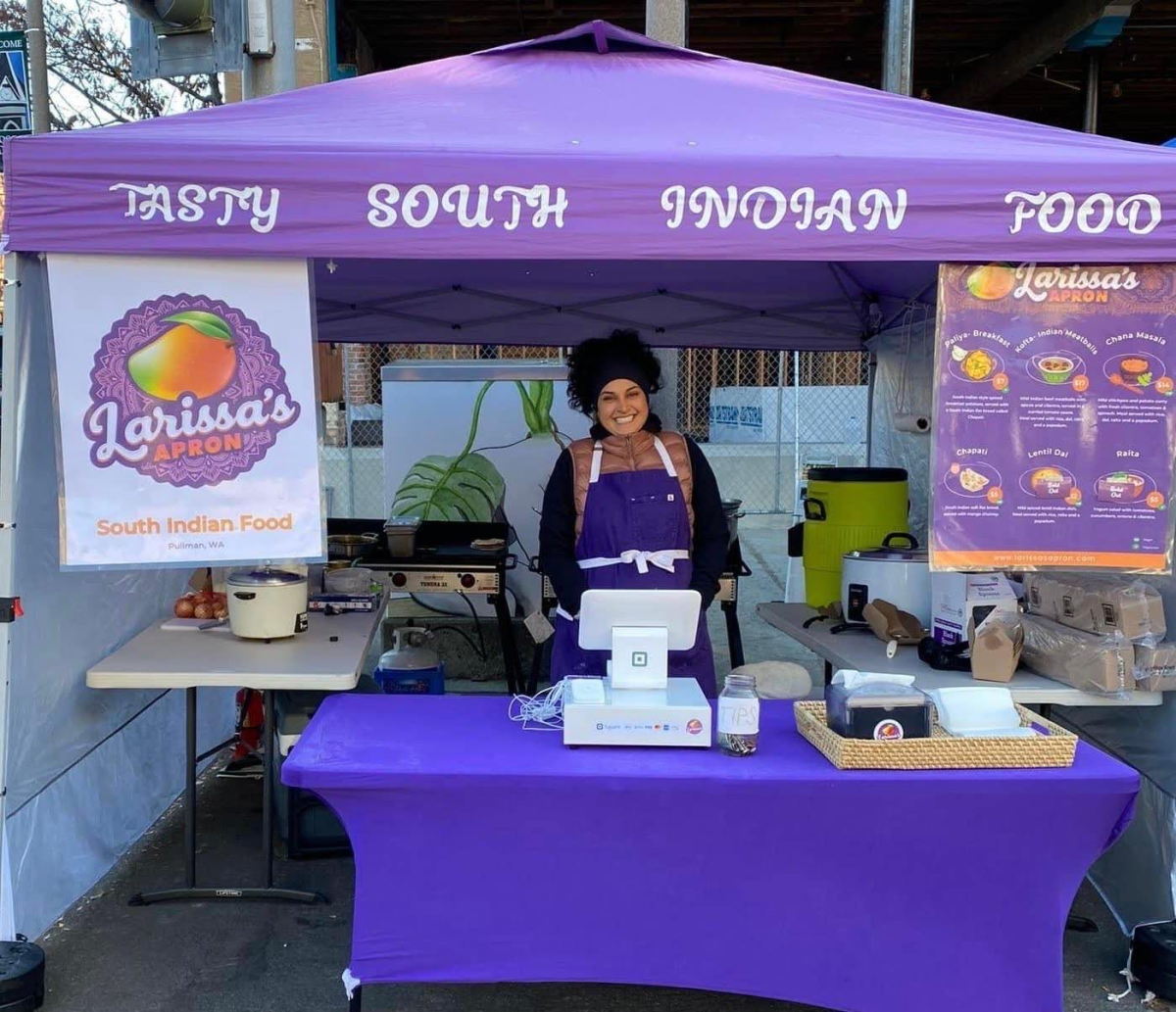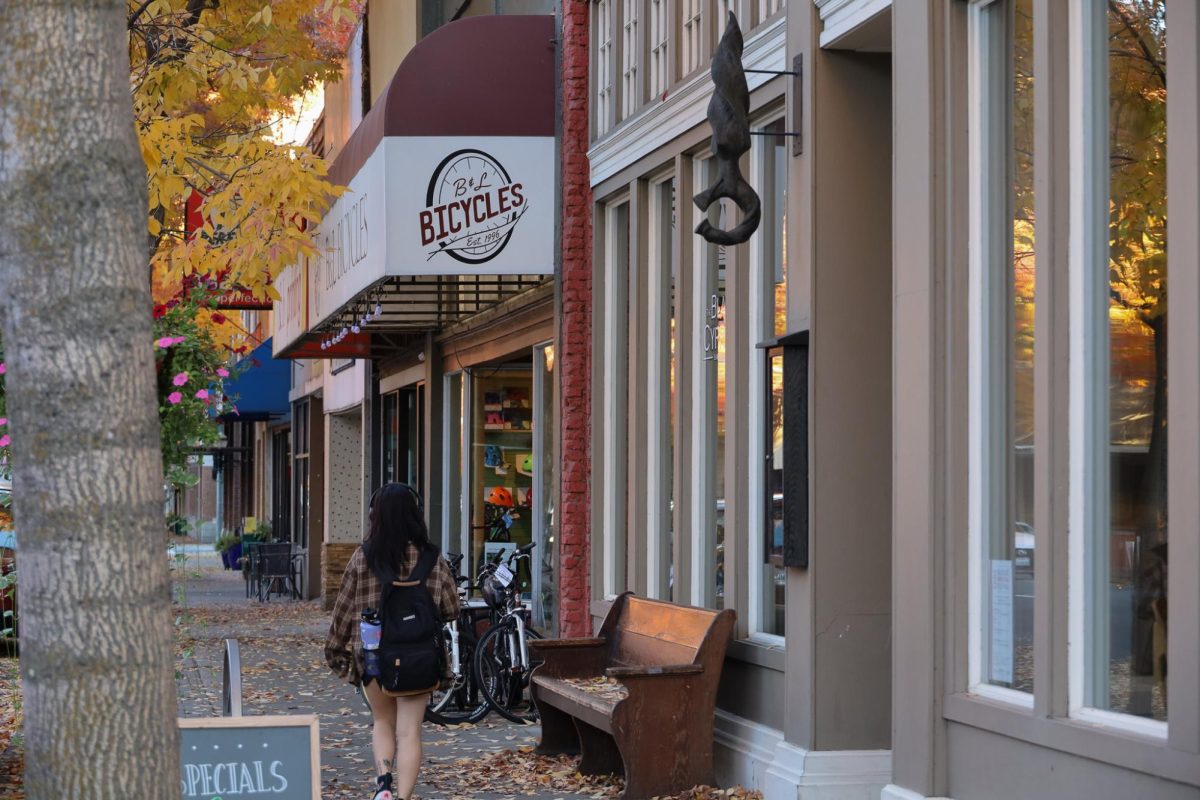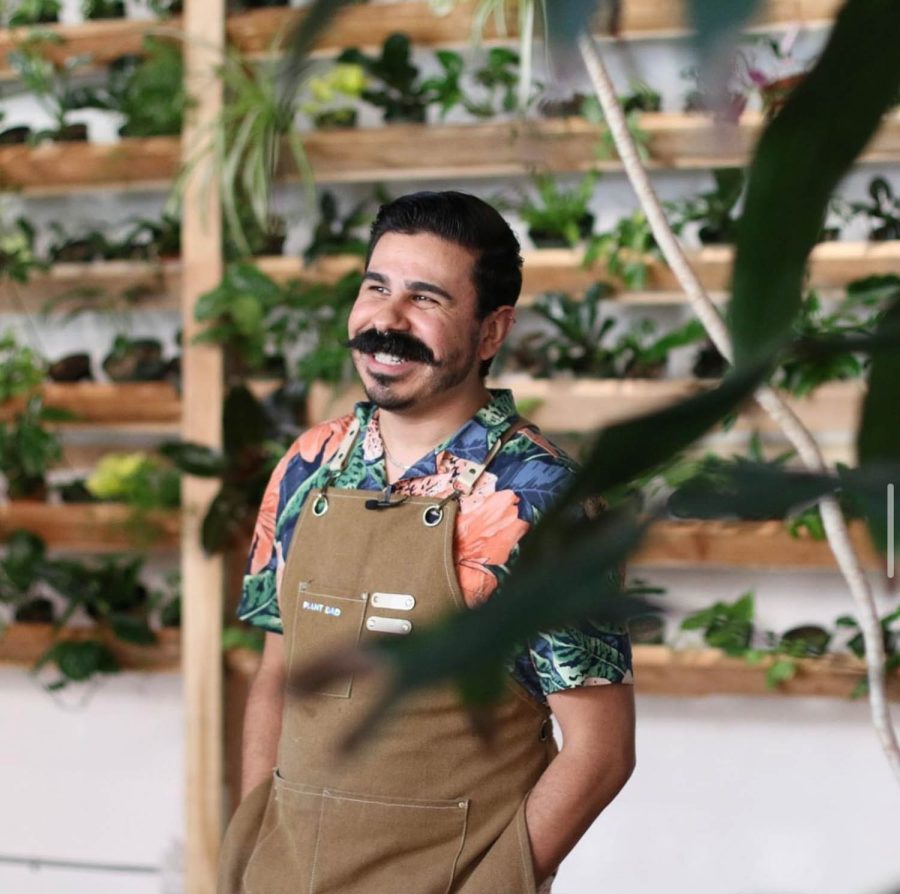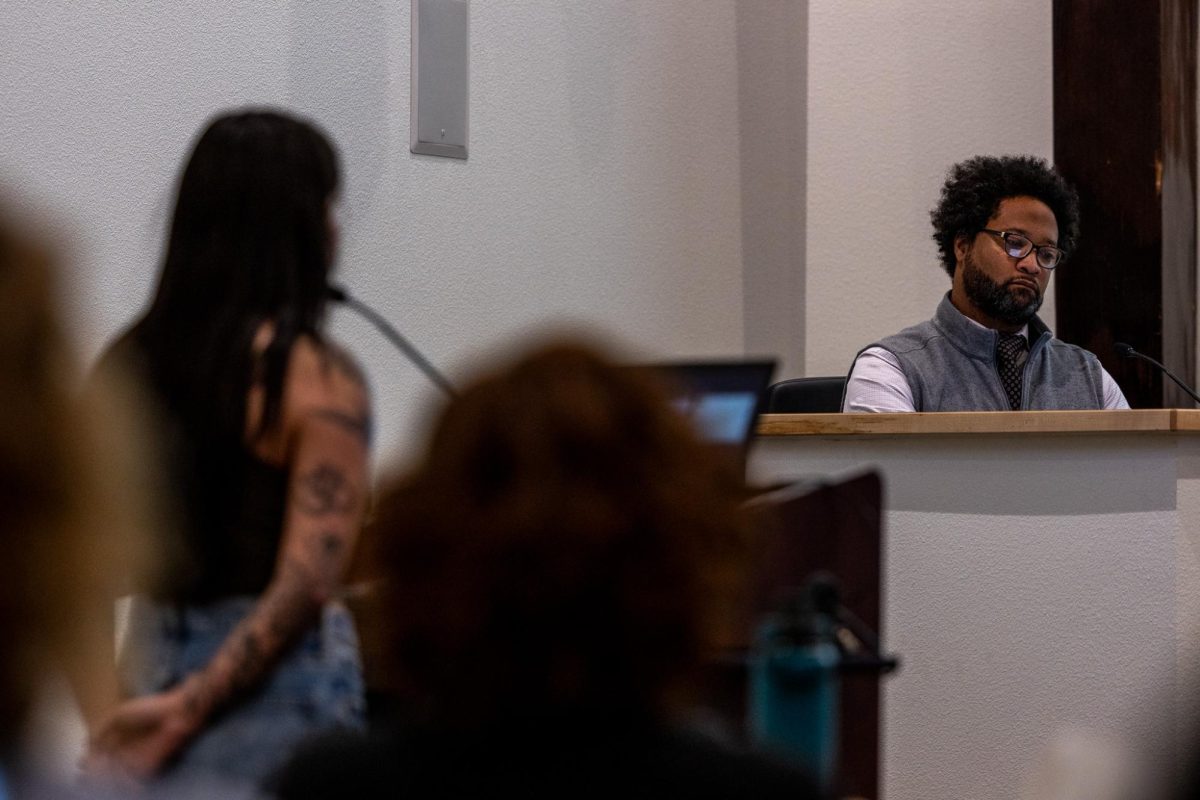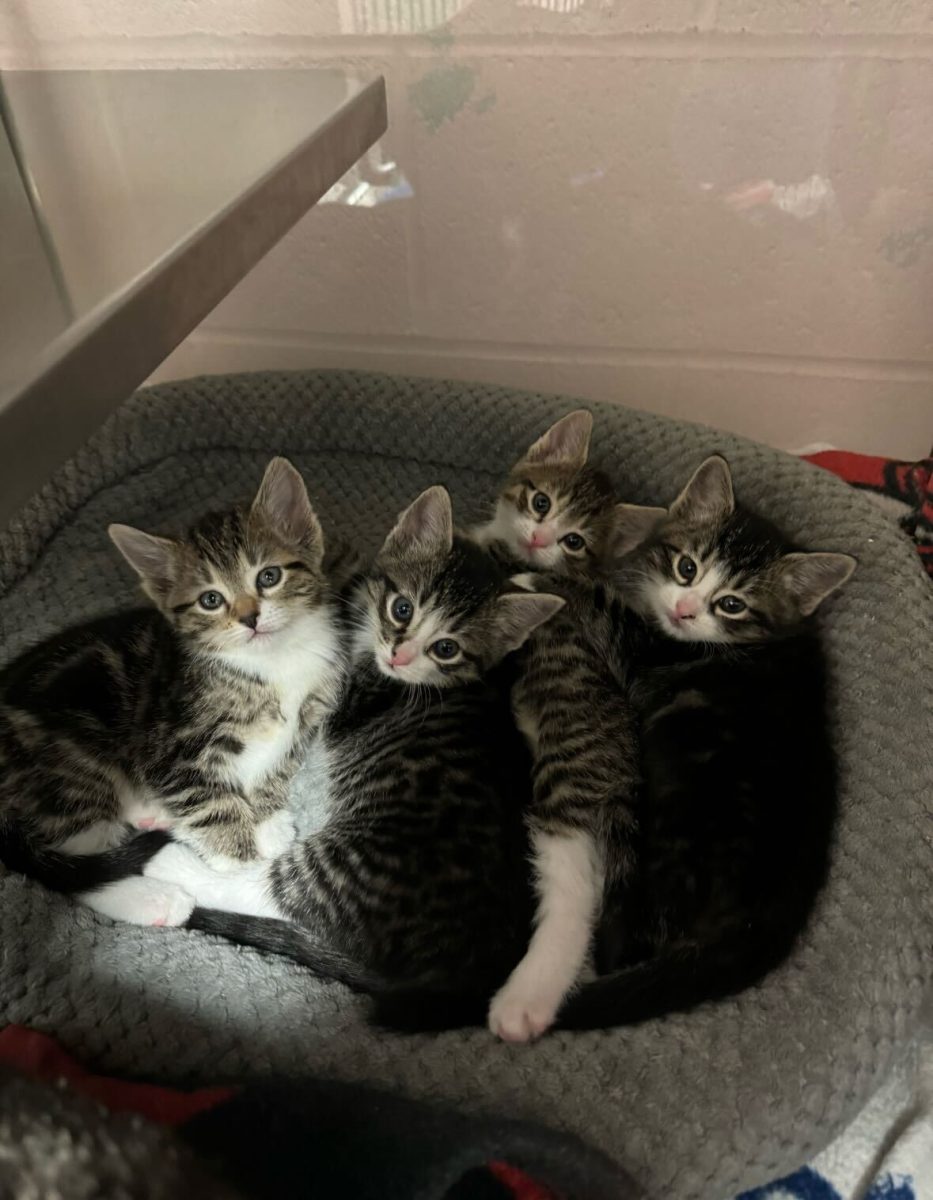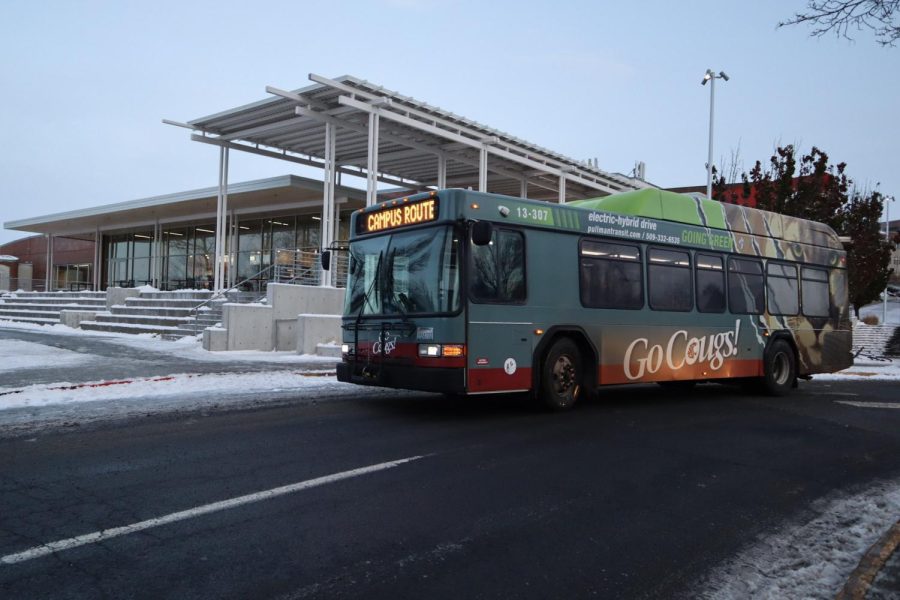Larissa’s Apron, owned and run by Larissa Seeber, was founded in October 2021 and was born out of Seeber’s love for the South Indian cuisine she grew up eating. Seeber was able to start her business through the Center for Inclusive Entrepreneurship. Through CIE, Larissa’s Apron was provided with a business advisor and advice on finances and advertising, she said.
As most of her family that moved to North America from Bangalore and Chennai is no longer around, she took it upon herself to recreate the food she loves and share it with others, Seeber said.
“I essentially want to share good food that’s healthy, homemade, and from my culture with other people and help them understand that not all Indian food is equal,” she said.
Delivery Pullman was put up by founder Frank Contreras in September 2020 and continues to run and own the local delivery business. Originally from Venezuela, Contreras was a mechanical engineer in Saudi Arabia before coming to Pullman in December 2018.

Frank Contreras founded Delivery Pullman in September 2020 in response to past experiences with pre-existing delivery services
Delivery Pullman came about due to Contreras’ experiences with pre-existing delivery services in Pullman, he said.
“I was doing delivery with another platform and found that you can do your own business here in Washington state very easily,” Contreras said. “It was a great opportunity because [with] other platforms like DoorDash and Uber Eats, there are people complaining a lot about the quality of the service and [so] I started thinking about it and decided to open my own business.”
Shaheen Khan founded Mela Bangladeshi Cuisine in 2014 when she began as a Moscow Farmers’ Market vendor. After receiving lots of attention from locals which also allowed Khan to begin catering, Mela Bangladeshi Cuisine was able to have a physical restaurant in November 2022, she said.
Khan, originally a stay-at-home mom, decided to pursue a culinary career because of her children.
“Whatever I cooked, my kids would tell me to start a business or do something with [my] food. I was very passionate about food,” she said. “My kids were around 12 years old at the time and I had enough time to do something for myself, so I decided to see what I can do.”
South Indian food is very much different from the Northern Indian cuisine most people, especially in North America, are used to, Seeber said. This is because South Indian food is spicier, has more vegetables, and uses flatbread.
Due to some individuals’ inexperience with South Indian cuisine, especially in the Palouse region, some are often hesitant to try the food she sells at the Moscow Farmers’ Market, she said.
The same could be said for the food that Mela Bangladeshi Cuisine offers, as many are unfamiliar with Bangladeshi food, Khan said.
“With Bangladeshi food, people are not familiar. I introduced salmon with mustard sauce and fish dopeyaja in this region. Most people understand [my food] the way they see Indian cuisine,” she said. “Some people initially said ‘No, I’m not a big fan of chicken curry,’ so when I served them, they said it’s amazing”
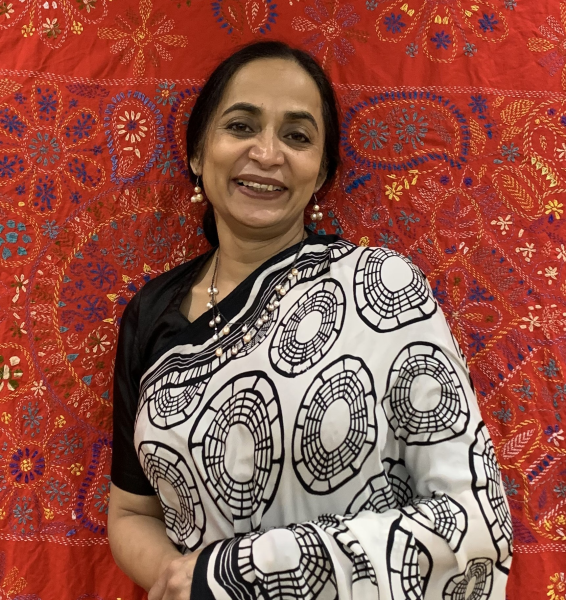
Shaheen Khan founded Mela Bangladeshi Cuisine in 2014 after beginning her culinary career due to inspiration from her children.
There are many in the area who are very much willing to try new things, Khan said. To those unfamiliar with Bangladeshi cuisine, one can begin to think of it as somewhat similar to Indian food.
“We are a subcontinental Indian region, my country is surrounded by India. Our way of cooking is probably a bit different but our spices are similar,” she said. “To my understanding, around the world, people like Indian cuisine, Bangladeshi cuisine is also part of that subcontinent.”
Khan and her family came to Pullman in 2000 which has allowed for her to have a good understanding of the area and the people in it, she said. This has also allowed for her to form strong bonds within the Pullman-Moscow community.
“I started from the Moscow Farmers’ Market and I feel proud to say [that] wherever I went, I got tremendous help,” she said. “It’s a unique town and people were very welcoming toward our cuisine.”
For Larissa’s Apron, a strong sense of community among customers and other small businesses is very much felt, Seeber said.
“Everyone I’ve come into contact with in Pullman is so incredibly kind. There’s lots of people who will just talk to you and give you free advice, which is huge, because we’re all small businesses,” she said. “When I go to pop-up events down in Lewiston and Clarkston, everybody has a food truck or a tent and they’ll give you advice.”
This is particularly true among businesses owned by fellow immigrants and/or people of color, Contreras said.
“It’s easy to connect with other immigrants. We have so many Chinese restaurants and Mexican restaurants, so these business owners are really open because we are from different countries,” he said. “It’s been easy to connect to these people.”
However, not all difficulties in overcoming cultural barriers have been eliminated as it is still difficult to connect with American-owned businesses, Contreras said. Despite these difficulties, Delivery Pullman has had strong relationships with local businesses like O-Ramen and Pups and Cups for almost three years.
For the majority of small businesses in the Palouse area, community bonds are strong, Khan said.
“Everybody is so supportive, the business community feels like a family in Pullman. Local customers and local people are like family to me,” she said.
Building strong community connections is something that Delivery Pullman strives for as the business works to set itself apart from other delivery platforms, Contreras said.
“I’m trying to make the delivery business different from Uber Eats and DoorDash because these platforms are not dedicated to doing the business,” he said. “My business is different. I’m connecting to the families, I’m connecting to the business owners, and I’m connecting to the community and it’s like a dedicated service.”
Delivery Pullman has also been involved with the WSU Food Pantry and has provided deliveries free of charge to families in need, he said.
“I’m trying to do this to connect with the community and [not be] like a drone in a delivery business, so I’m very happy. ” he said. “I know the Pullman Chamber of Commerce, I know the people of the schools, I’ve been working more frequently with [Schweitzer Engineering Laboratories].”
The business is also 20-30% cheaper than other platforms and aims to keep prices affordable, Contreras said. Delivery Pullman is also able to do this by having prices on the platform match restaurant prices without extra fees, he said.
“This is the main goal, to offer the same price as the restaurants and have people only pay for the delivery fee,” he said. “Eventually, I want to see everybody working with Delivery Pullman.”
There is great opportunity for local businesses owned and operated by people of color in the Palouse, Seeber said.
“I think people in the Pullman area are open-minded and willing to try new things,” she said. “I think I’m a success story of that, because I’m providing something that no one’s really eaten in this region before and I’m successful at it. I think that’s proof that other people of different ethnicities can do that too.”
It is important for business owners to remember to financially advocate for themselves, especially in today’s economic climate, Contreras said.
“It’s not easy for immigrants to keep [businesses] running. I know that when the pandemic hit very hard, so many people applied for loans,” he said.
Many immigrant business owners did not apply for loans or grants from the government, Contreras said. This is something that should be considered by people of color and/or immigrants that own local businesses.
For people of color and immigrants in the Palouse hoping to put up their own business or are in the process of doing so, perseverance is important, Khan said.
“Do whatever you are best at. With whatever we are doing, we have to be honest with it,” she said. “You have to prove yourself. It is constant, every day is a struggle, but once you are there people will love whatever you are doing.”





